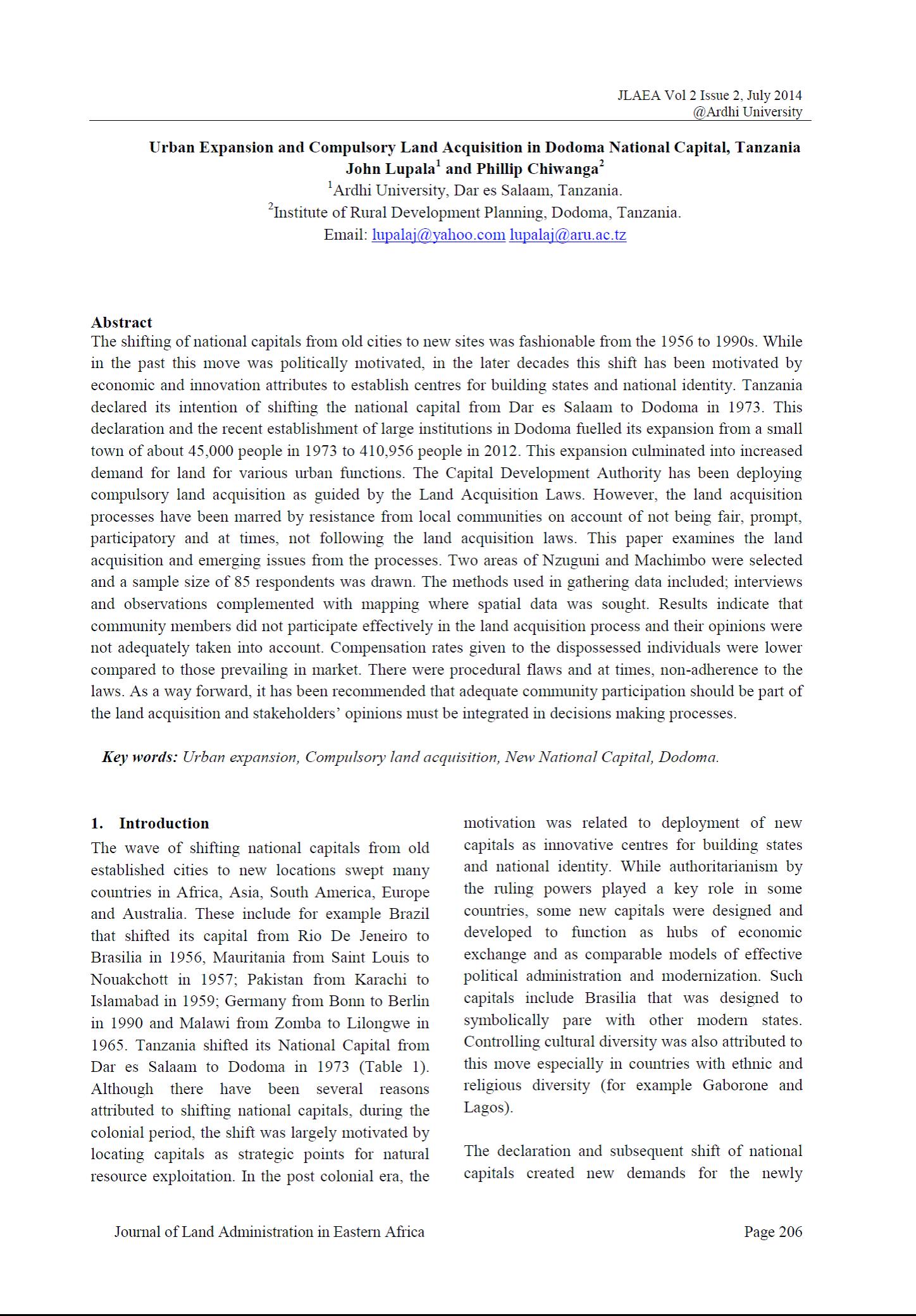Resource information
The shifting of national capitals from old cities to new sites was fashionable from the 1956 to 1990s. While in the past this move was politically motivated, in the later decades this shift has been motivated by economic and innovation attributes to establish centres for building states and national identity. Tanzania declared its intention of shifting the national capital from Dar es Salaam to Dodoma in 1973. This declaration and the recent establishment of large institutions in Dodoma fuelled its expansion from a small town of about 45,000 people in 1973 to 410,956 people in 2012. This expansion culminated into increased demand for land for various urban functions. The Capital Development Authority has been deploying compulsory land acquisition as guided by the Land Acquisition Laws. However, the land acquisition processes have been marred by resistance from local communities on account of not being fair, prompt, participatory and at times, not following the land acquisition laws. This paper examines the land acquisition and emerging issues from the processes. Two areas of Nzuguni and Machimbo were selected and a sample size of 85 respondents was drawn. The methods used in gathering data included; interviews and observations complemented with mapping where spatial data was sought. Results indicate that community members did not participate effectively in the land acquisition process and their opinions were not adequately taken into account. Compensation rates given to the dispossessed individuals were lower compared to those prevailing in market. There were procedural flaws and at times, non-adherence to the laws. As a way forward, it has been recommended that adequate community participation should be part of the land acquisition and stakeholders‟ opinions must be integrated in decisions making processes.


